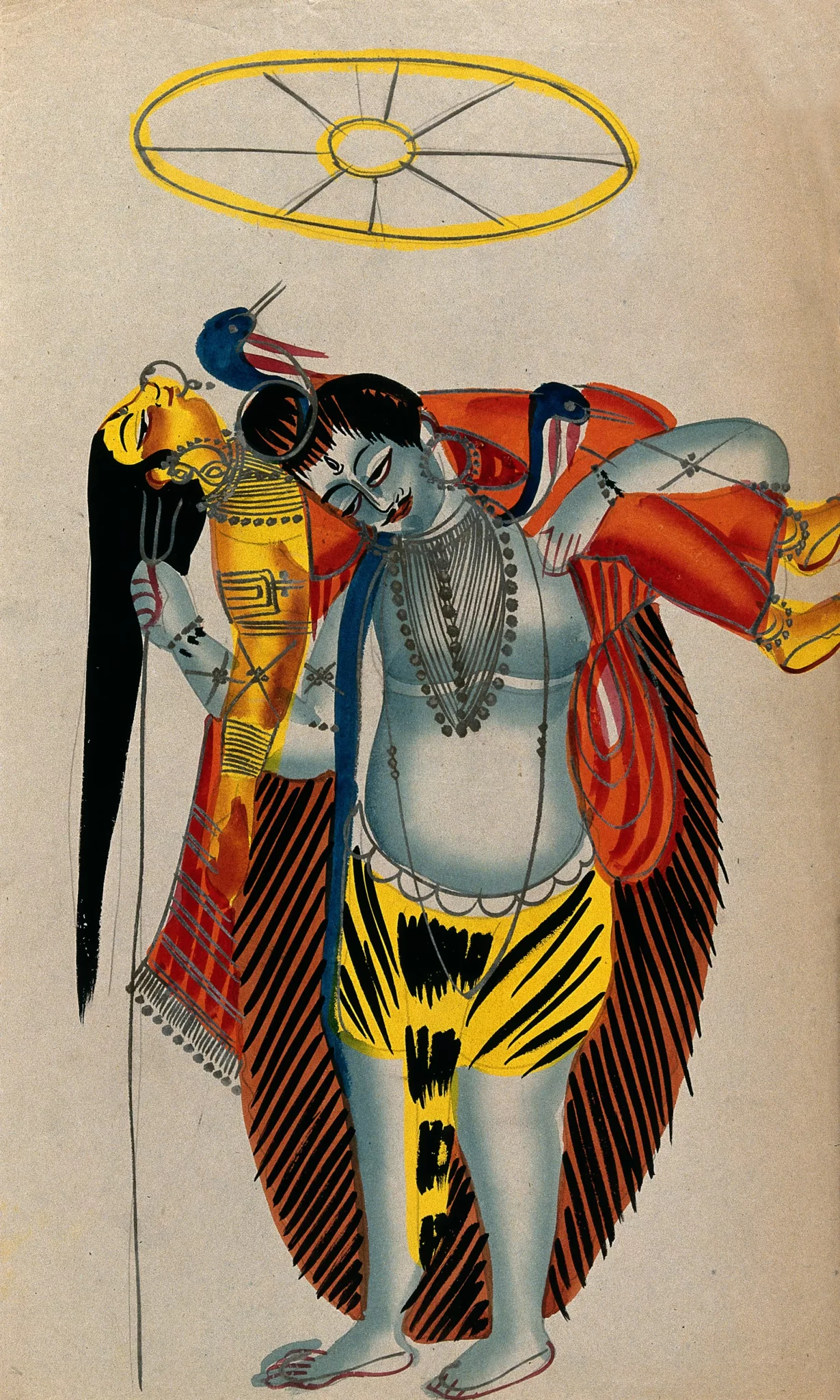I believed, hoped, and walked on glass sand.
I felt electric urges going up my spine.
I cursed my origins, my being a non-being.
I prayed to recondite and cursed deities.
In this dream, without wakefulness,
I longed for love
And now,
At the foot of a tired cypress tree,
Among the veiled shadows of my Sakti,
I find only a ditch,
Where I could hide,
careless,
My insane torment.
It’s night,
By now.
Deposited for legal protection with Patamu: certificate
Video
A brief note on the concept of Sakti
In Indian culture, the concept of Shakti represents the divine feminine energy and power believed to be the universe’s source of creation, preservation, and destruction. Shakti is commonly associated with various goddesses such as Durga, Kali, and Parvati, each representing different aspects of the divine feminine. The relationship between Shakti and the other deities is intricate and profound. Shakti is often seen as the active and dynamic force that complements the male deities, representing consciousness and stability.

For example, Shakti is considered the consort of Shiva, the god of destruction and transformation. Together, they symbolize the union of male and female energies, emphasizing the importance of balance and harmony in the cosmic order. Similarly, in the worship of Devi, the goddess who embodies the different forms of Shakti, devotees seek her blessings for strength, protection, and prosperity. Shakti’s interconnection with other deities highlights the integral role of feminine energy in sustaining the universe and its various manifestations.
If you like this poem, you can always donate to support my activity! One coffee is enough!


